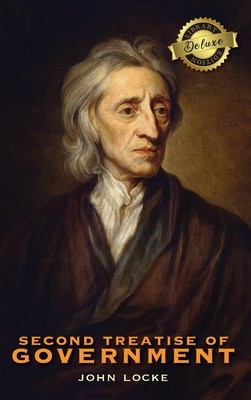
- Išsiųsime per 10–14 d.d.
- Autorius: John Locke
- Leidėjas: Engage Classics
- ISBN-10: 177476055X
- ISBN-13: 9781774760550
- Formatas: 15.2 x 22.9 x 1.1 cm, kieti viršeliai
- Kalba: Anglų
- Extra -15 % nuolaida šiai knygai su kodu: ENG15
Second Treatise of Government (Deluxe Library Edition) (el. knyga) (skaityta knyga) | knygos.lt
Atsiliepimai
Aprašymas
The Second Treatise of Government outlines John Locke's theory of civil society. Locke begins by describing the state of nature, and argues that all men are created equal in the state of nature by God. From this, he goes on to explain the hypothetical rise of property and civilization, in the process explaining that the only legitimate governments are those that have the consent of the people. Therefore, any government that rules without the consent of the people can, in theory, be overthrown.
The work of Thomas Hobbes made theories based upon a state of nature popular in 17th-century England, even as most of those who employed such arguments were deeply troubled by his absolutist conclusions. Locke's state of nature can be seen in light of this tradition. There is not and never has been any divinely ordained monarch over the entire world, Locke argues. However, the fact that the natural state of humanity is without an institutionalized government does not mean it is lawless. Human beings are still subject to the laws of God and nature.
EXTRA 15 % nuolaida su kodu: ENG15
Akcija baigiasi už 3d.00:22:38
Nuolaidos kodas galioja perkant nuo 10 €. Nuolaidos nesumuojamos.

- Autorius: John Locke
- Leidėjas: Engage Classics
- ISBN-10: 177476055X
- ISBN-13: 9781774760550
- Formatas: 15.2 x 22.9 x 1.1 cm, kieti viršeliai
- Kalba: Anglų
The Second Treatise of Government outlines John Locke's theory of civil society. Locke begins by describing the state of nature, and argues that all men are created equal in the state of nature by God. From this, he goes on to explain the hypothetical rise of property and civilization, in the process explaining that the only legitimate governments are those that have the consent of the people. Therefore, any government that rules without the consent of the people can, in theory, be overthrown.
The work of Thomas Hobbes made theories based upon a state of nature popular in 17th-century England, even as most of those who employed such arguments were deeply troubled by his absolutist conclusions. Locke's state of nature can be seen in light of this tradition. There is not and never has been any divinely ordained monarch over the entire world, Locke argues. However, the fact that the natural state of humanity is without an institutionalized government does not mean it is lawless. Human beings are still subject to the laws of God and nature.




Atsiliepimai